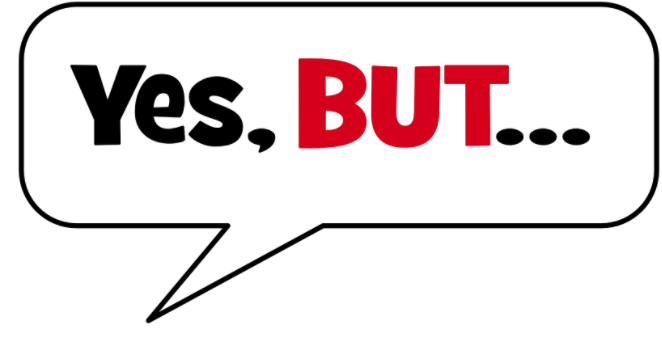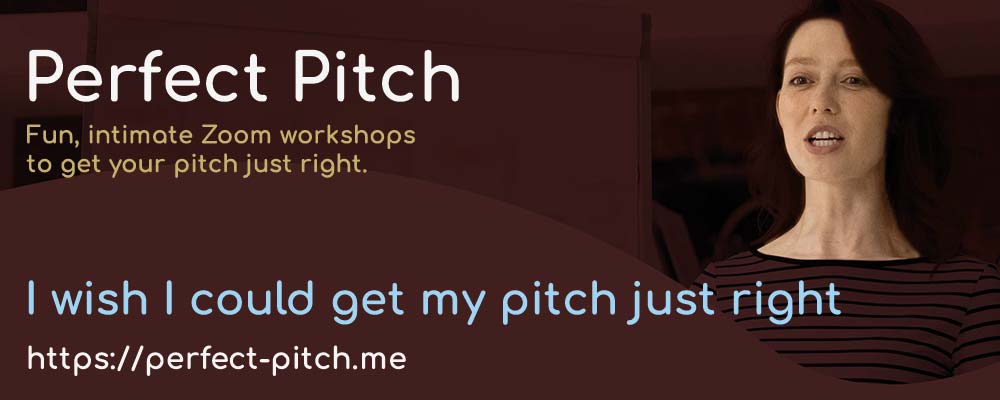Words to use with caution: ‘But’
Where did this come from? From our free The Pegasus NLP Newsletter
Imagine you are with a close friend and he or she says I really appreciate you as a friend, I am glad we get to spend time together, and I especially like your sense of humour… and then pauses and adds …BUT….
Or someone says
That’s a lovely jacket you’re wearing … but…
You did a wonderful job with this… but…
I like your new hairstyle… but…
What happens in your mind when the person says that little word – even before they say anything else?
However, we rationally respond our emotional response is to ignore everything that went before the ‘but’ and to focus on what comes after it – instinctively we recognise that this is what they really think, feel or intend.
‘But’ negates whatever precedes it
The word BUT negates or cancels everything that goes before it. And is generally accepted as a signal that the really important part of the sentence is coming up.
When you use it most people listening to you will give more attention and more weight to what you say after you say BUT. This tiny little word is widely misused…
Managers use it when giving feedback in appraisals:
You handled that wonderfully… but…
On the whole, your performance was good… but…
Spouses misuse it:
I really love the way you touch me … but…
It’s great being with you… but…
Teachers misuse it:
That wasn’t too bad… but…
Your spelling is good … but …
In each case, it is likely that person speaking fully intends to be helpful or complimentary. But they then step on this verbal ‘landmine’ which then demolishes the effect they are attempting to create.
The disguised ‘but’
There are other ways of having the same effect without using the word. For example ‘yet’ and ‘however’ can be used with similar negative impact:
I enjoyed that … however…
You made some good points just now… and yet…
What to do instead
Simply replace BUT with the word AND! Do it for just seven days and it is likely that you will use it a lot less in future.
Instead of:
I had a great evening out with you but perhaps we tried to pack too much into it
Your performance in your job has been very good but I’d like you to be more of a team player
I agree with a lot of what you are saying but I wonder if we could examine this particular point
Use:
I had a great evening out with you AND perhaps we tried to pack too much into it
Your performance in your job has been very good and I’d like you to be more of a team player
I agree with a lot of what you are saying and I wonder if we could examine this particular point
You may find this a bit of a stretch, incidentally, because this little word and the attitude that goes with it is a quite deeply ingrained part of the culture of native English speakers. (I cannot speak for other cultures but I’d like to have your comments on this.)
Be careful with your use of ‘and’, too. If you over-emphasise it and, especially if you pause before and after using it this will have the almost same effect as using but!
The useful way to use ‘But’
Of course, there’s nothing wrong with using ‘but’ as long as you are aware of how it will influence the other person’s thinking. Which is why I used it twice in the above text – yes, it was deliberate :-).
Use it, for example, when you want to acknowledge something negative but emphasise the positive alternative
That wasn’t your best effort BUT I know you will do better next time.
OK, so we screwed up there BUT let’s learn from our mistakes and move on.
We’re certainly facing some huge obstacles with this project BUT I know we can succeed.
Why make a fuss about one little word?
In corporate work I’ve seen experienced managers make great feedback comments and then sabotage the effect by adding ‘but’. I’ve heard people tell their spouses or life partners how much they love them and then spoil the effect with a ‘but’. And I’ve seen parents evoke unwelcome responses in their children with careless use of their ‘buts’.


